The Security Council discussed the implementation of UNSC Resolution 2231 on Monday.
After the meeting, three European countries (E3) issued a statement on the 2015 nuclear deal, known as the Joint Comprehensive Plan of Action (JCPOA).
"Iran has been in violation of its commitments under the Joint Comprehensive Plan of Action (JCPOA) for three and a half years and continues to escalate its nuclear programme while cutting down significantly on its transparency commitments. Iran has no credible civilian justification for these actions, which carry very significant proliferation-related risks. Today, Iran’s nuclear programme has never been more advanced," they claimed in the statement.
"In November, Iran announced it was increasing its enriched uranium production capabilities at Fordow and Natanz well beyond JCPOA limits. These activities provide Iran with irreversible knowledge gains. It also reduces the time needed for Iran to gather enough fissile material for multiple nuclear weapons, should it choose to do so," E3 further claimed.
These comments came as Tehran stresses that its nuclear program is for peaceful purposes and there is a Fatwa by the Leader of the Islamic Revolution of Iran which bans any possession and use of weapons of mass destruction.
Iran has always declared that nuclear weapons are against Islamic teachings and that nuclear weapons have no place in the defense doctrine of the Islamic Republic of Iran.
"Iran also continues to produce unprecedented levels of Low and High Enriched Uranium, enriching up to 60%. This is especially concerning as Iran has suspended the IAEA’s ability to monitor and verify an important part of Iran’s nuclear activities, making it harder for the IAEA to provide assurance of the peaceful nature of Iran’s nuclear programme. Iran’s continued escalation has severe impacts on international security and the non-proliferation regime. Iran refused to take the deal tabled by the JCPOA Coordinator in March and August to return to full compliance with its JCPOA commitments, with continued unacceptable demands beyond the scope of the JCPOA. The JCPOA and the implementation of IAEA Safeguards are separate. Iran has internationally binding legal obligations to account for all nuclear material and to cooperate with the IAEA," it added.
The statement continued, "Today, the Security Council has also discussed key developments regarding Iran’s missile programme and its destabilizing transfers of missiles and drones to actors in the region and beyond. First, Iran continues to undertake ballistic missile activities that are inconsistent with UNSC Resolution 2231, including by testing space launch vehicles, which employ technology applicable to long-range and intercontinental-range ballistic missile development.
Second, Iran’s weapons proliferation poses a real and significant threat to the region and the whole international community. We strongly condemn Iran’s destabilizing activity in the region and we call upon Iran to stop all ballistic missile activities and proliferation inconsistent with UNSCR 2231 and other UNSC resolutions.
Third, since August, Iran has transferred hundreds of UAVs to Russia, which has used them to kill civilians and target infrastructure, as it did once again today against Kyiv. We strongly condemn such transfers, which violate UN Security Council Resolution 2231. Indiscriminate attacks against civilian populations and infrastructure constitute war crimes. We strongly caution Iran against any further deliveries of weapons to Russia, in particular of any short-range ballistic missiles, which would constitute a serious escalation."
The anti-Iran claims first emerged in July, with US National Security Advisor Jake Sullivan alleging that Washington had received “information” indicating that the Islamic Republic was preparing to provide Russia with “up to several hundred drones, including weapons-capable UAVs on an expedited timeline” for use in the war.
Both Iran and Russia have repeatedly denied claims that Tehran has provided Moscow with drones to be used in the war in Ukraine.
Iran sees the accusations as part of a new campaign launched by the Western countries after those states faced Iran's steadfastness in support of the nation's rights and its reasonable stance in the talks to revive the JCPOA and remove the sanctions. The newly started campaign is aimed at forcing Iran to make concessions at the negotiating table.
E3 concluded, "We encourage the Secretary-General to examine and report any evidence of transfers of items, materials, equipment, goods and technology or related services inconsistent with UNSCR 2231. We would welcome a visit by competent UN experts to Ukraine as requested by the Government of Ukraine and supported by other member states."
MNA/5660095


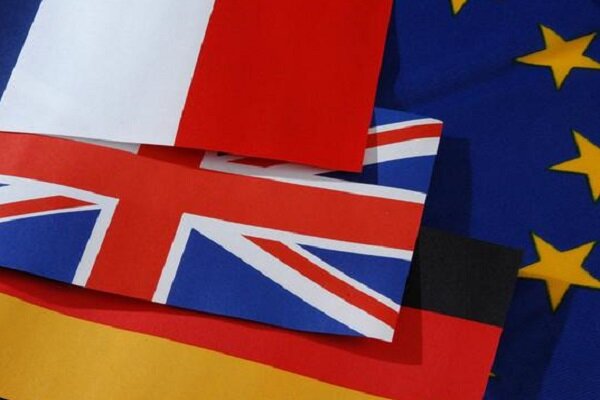
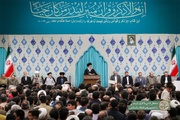
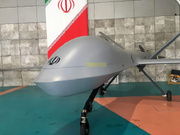
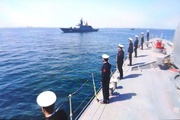
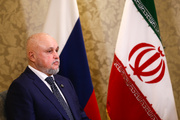




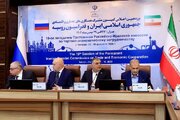
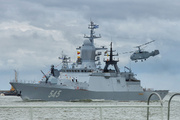










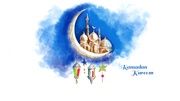
Your Comment